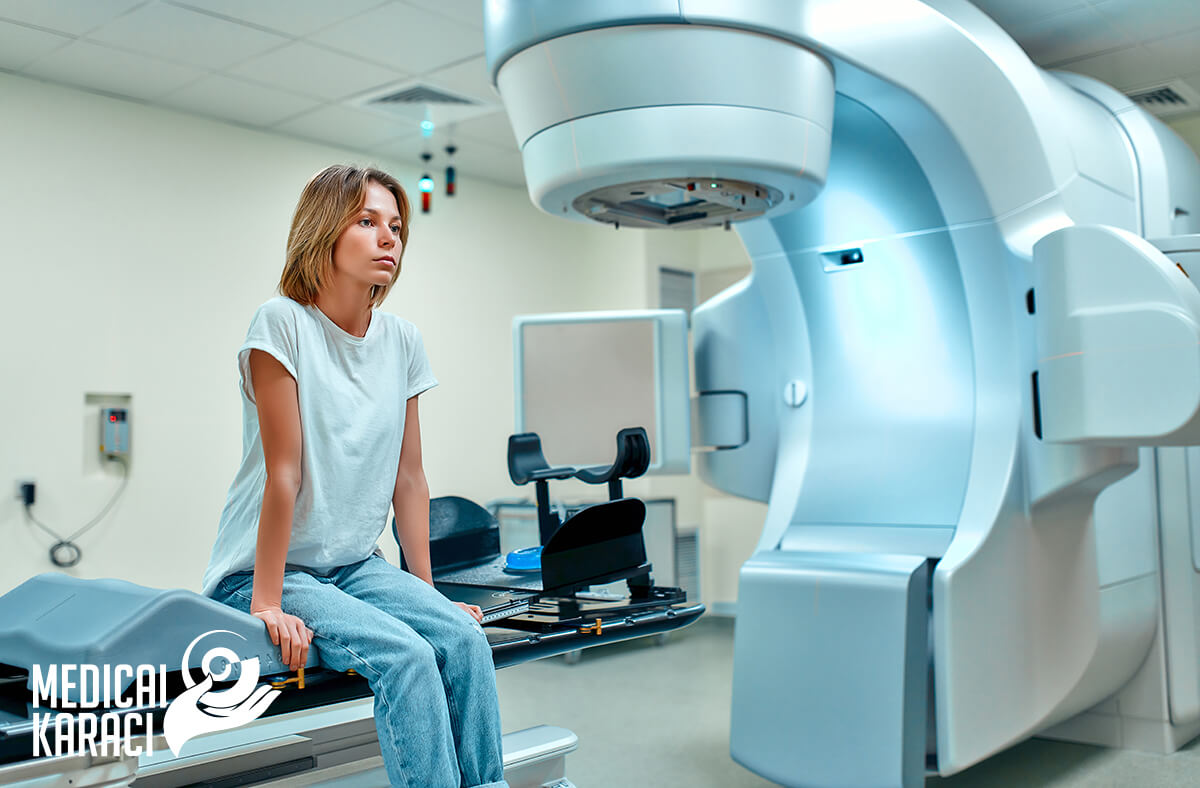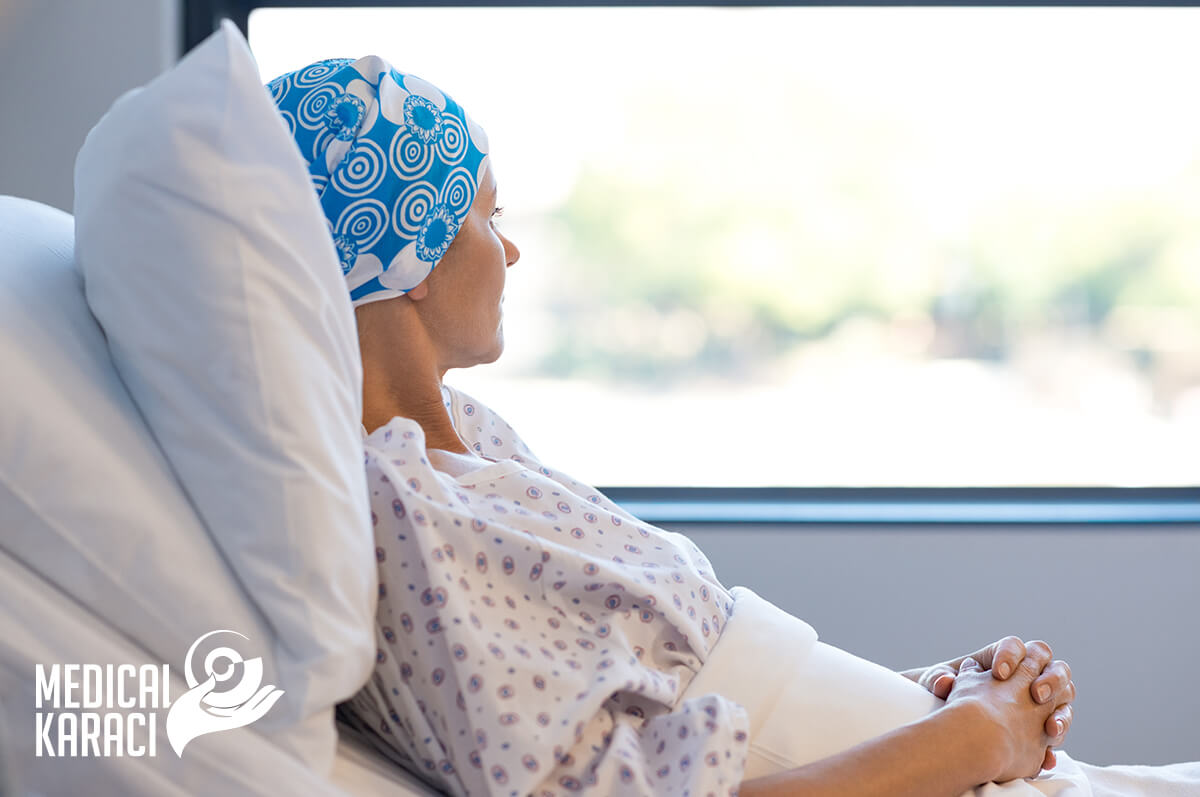In order to make a smooth transition to Oncology and try to cover at least a small part of the vast knowledge about this vast field of medicine, let us focus on some basic points to present the information in an accessible way.
What is cancer? Do we know what it is?
Cancer is the uncontrolled growth of abnormal cells in the body. Cancer develops when the body's normal control mechanism stops working. The old cells do not die and instead grow uncontrollably, forming new, abnormal cells. These extra cells can form a mass of tissue called a tumor. Some cancers, such as leukemia, do not form tumors.
Cancer can occur anywhere in the body. In women, breast cancer is one of the most common. In men, it is prostate cancer. Lung cancer and colorectal cancer affect both men and women in large numbers.
What is Oncology?
Oncology, is the branch of medicine devoted to the diagnosis, treatment and study of cancer. A doctor who works in the field is called an oncologist. Some oncologists focus solely on specific types of cancer or treatments. Depending on the type, stage, and location of the cancer, multiple oncology specialists may be involved in a patient's treatment.
There are three main specialties in oncology - medical oncology, surgical (operative) oncology and radiation oncology. In addition to the three main specialties, there are numerous subspecialties in this field.
- The medical oncologist is a physician trained to diagnose, stage and treat cancer. This specialist also guides the development of the cancer patient's treatment plan, which may include surgery, chemotherapy, immunotherapy, targeted therapy, or hormone therapy. The medical oncologist also coordinates with other oncology specialists who may have a role in the patient's care. The medical oncologist is also the doctor the cancer patient will continue to see even after his or her treatment is over, in connection with monitoring his or her condition.
- The oncologist surgeon is a doctor involved in taking biopsies, removing cancerous tumors, and other cancer-related surgeries.
- The radiation oncologist specializes in treating cancer through radiation therapy to shrink or destroy cancer cells or to relieve symptoms associated with cancer.
Many cancers are treated by subspecialists in oncology, i.e. there are multiple subspecialties of the oncology specialty. Examples are: gynaecological oncology, neuro-oncology and many others.
Some of the most common cancers are:
- Lung cancer
- Breast Cancer
- Colorectal Cancer
- Prostate cancer
- Melanoma (skin cancer)
- Stomach cancer
- Bladder cancer
- Non-Hodgkin's lymphoma
- Liver cancer
- Breast cancer in men
Researchers around the world are making great strides in the fight against cancer. The effort is significant and science and medicine are definitely making progress. Surely, the efforts of all scientists will not cease until perhaps one day the formula of success is discovered! Until then, it is good to know what the first symptoms might be - the signs that tell us that something may be going on in our bodies.
Sometimes, cancer can develop without warning. But in the vast majority of cases, there are warning signs. The earlier you detect possible signs of cancer, the better your chances of survival.
Here are some signs to look out for:
- Weight Loss
As cancer cells attack healthy ones, your body may respond by losing weight.
According to the American Cancer Society (ACS), many people unexpectedly lose 10 pounds or more before a cancer diagnosis. In fact, this may be the first sign of cancer.
Unexplained weight loss can also be caused by other health conditions, such as hyperthyroidism (overactive thyroid). The difference with cancer is that weight loss can occur suddenly.
- Fever
Fever is the body's reaction to infection or disease. People who have cancer often have fever as a symptom. It is usually a sign that the cancer has spread or that it is in an advanced stage. Fever is rarely an early symptom of cancer, but it can be if a person has a blood cancer, such as leukemia or lymphoma.
- Bleeding
Some cancers can also cause abnormal bleeding. For example, colon or rectal cancer can cause bloody stools, while blood in the urine can be a symptom of prostate or bladder cancer. It is important to report such symptoms to your doctor
- Pain and fatigue
Unexplained fatigue can be another symptom of cancer. It is actually one of the most common symptoms. Fatigue that doesn't seem to go away despite adequate sleep may be a symptom of an underlying health problem - cancer is just one possibility.
Fatigue is most prominent in leukemia. Fatigue can also be associated with blood loss from other cancers. In some cases, cancer that has spread or metastasized can cause pain. For example, back pain may be present in cancers of: colon, prostate, ovary, rectum.
- Persistent cough
Cough can occur for a variety of reasons. Colds, allergies, flu or even low humidity can lead to coughing.
When it comes to lung cancer, however, the cough can persist for a long time, despite the means of treatment. The cough may be frequent and may cause hoarseness. As the disease progresses, you may even cough up blood. A persistent cough is also sometimes a symptom of thyroid cancer
- Skin changes
Skin changes are most commonly associated with skin cancer, where moles or warts change or enlarge. Certain skin changes may also indicate other forms of cancer
- Night sweats
Night sweats are more intense than light sweats or feeling too warm. Like other symptoms mentioned earlier, night sweats can occur for a number of reasons unrelated to cancer.
How is Cancer treated? What are the types of treatment?
The most common types of treatments are as follows:
- Surgery - surgical removal of as much of the cancer as possible.
- Chemotherapy - drugs that are toxic to cells are used to kill rapidly dividing cancer cells.
- Radiotherapy - It uses powerful, focused beams of radiation inside (brachytherapy) or outside (external beam radiation) of your body to kill cancer cells.
- Stem cell transplant (bone marrow) - Stem cell or bone marrow transplants are treatments for some cancers, including leukemia, lymphoma, and myeloma. A typical stem cell transplant for cancer uses very high doses of chemotherapy, sometimes along with radiation therapy, with the goal of destroying all the cancer cells. The goal is for the transplanted cells to settle into the bone marrow over time to begin growing and making healthy blood cells. This process is called engraftment.
- Immunotherapy (biological therapy) - Immunotherapy is a treatment that uses a person's own immune system to fight cancer. Immunotherapy uses antibodies to help the body's immune system recognize cancer so it can fight it. Immunotherapy can boost or change the way the immune system works so it can detect and attack cancer cells. If your treatment plan includes immunotherapy, knowing how it works and what to expect can often help you prepare for treatment and make informed decisions about your care.
Immunotherapy is a treatment that can be conducted in two ways:
- Stimulating or boosting your immune system's natural defenses so it works harder or smarter to detect and attack cancer cells.
- Developing substances in the laboratory that are just like components of the immune system and using them to help your immune system restore or improve its performance to detect and attack cancer cells.Over the past few decades, immunotherapy has become an important part of the treatment of some cancers. New immunotherapy treatments are being tested and approved, and new ways to work with the immune system are being discovered at a very rapid pace.
Immunotherapy works better for some cancers than others. It is only used for some of these cancers. - Hormonal therapy - Hormones are proteins or substances produced by the body that help control how certain types of cells work. For example, some parts of the body rely on sex hormones, such as estrogen, testosterone, and progesterone, to function properly. There are other types of hormones in our bodies, such as thyroid hormones, cortisol, adrenaline, and insulin. Different types of hormones are produced by different organs or glands.
Some cancers depend on the growth of hormones. Because of this, certain cancers can be treated by using drugs that block or change hormones. This can slow or stop the growth of cancers that depend on this hormone. Treating cancer with hormones is called hormone therapy or endocrine therapy. Hormone therapy is mostly used to treat certain types of breast cancer and prostate cancer that depend on sex hormones. Several other cancers can also be treated with hormone therapy. - Target therapy - Targeted therapy is a type of cancer treatment that uses drugs or other substances to identify and attack specific types of cancer cells. Targeted therapy may be used alone or in combination with other treatments, such as traditional or standard chemotherapy, surgery, or radiation therapy.
Clinical trials:
Clinical trials are studies in which people volunteer to take part in tests of new drugs or treatments. Doctors use clinical trials to develop new treatments for serious diseases such as cancer. It is important to mention that clinical trials are extremely important for the development of medicine, in relation to the discovery of new therapeutic methods in the fight against Cancer, to find new, effective methods for the early diagnosis and prevention of Cancer. Often even your doctor is well aware of the studies in which you have a potential chance to take part. And thus, you could be eligible to make a voluntary and informed choice to participate in a clinical trial.
Hospitals:
For more information, you can call +359895770869.











